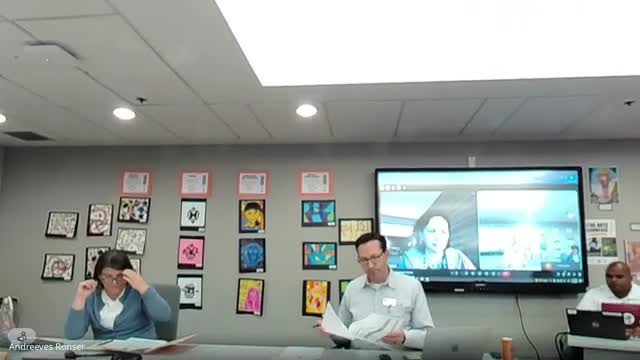Mercer Island board finds district compliant with financial policy but flags shortfall in fund reserves
Get AI-powered insights, summaries, and transcripts
Subscribe
Summary
The Mercer Island School District Board of Directors voted to find the district in compliance with Board Policy 1800 OE7 on financial administration while noting one exception: the district did not meet the board's target for annual fund reserves (Item 5).
The Mercer Island School District Board of Directors voted to find the district in compliance with Board Policy 1800 OE7 on financial administration while noting one exception: the district did not meet the board's target for annual fund reserves (Item 5).
Board members framed the vote around two pressing realities: district revenues that have not kept pace with inflation, and rising labor, benefits and insurance costs that are pressuring the budget. The board agreed to accept the monitoring report with a written exception noting the fund-balance shortfall and directed superintendent and staff to return with scenarios for fund-balance targets and recommended follow-up.
Why it matters: The board's financial monitoring review is the district's formal check on whether administration's monthly and annual financial actions match board policy and its long-term fiscal goals. The board's decision to note noncompliance on the fund-reserve target signals an official concern about the district's ability to meet lean-month cash needs without changes in revenue or program reductions.
What the board said
Superintendent Rundle told the board the district had made "steady progress in a time that is really challenging for school districts," and warned that state apportionment increases have not matched inflation, creating a structural squeeze.
"The revenues that we continue to receive from the state are not keeping up with inflation, so we keep falling further and further behind," Director Sullivan said, noting the combined effects of rising benefits, negotiated salary increases and other inflationary costs.
Board Director Deborah (identified in the meeting transcript as Deborah) said she would vote to accept the monitoring report with the exception: "I will be voting in compliance with all terms except for number 5, which is not in compliance," she said, adding she believed the district had been transparent about why the shortfall exists.
Key details
- Policy reviewed: Board Policy 1800 OE7, Financial Administration. The policy requires the superintendent to "take reasonable measures to prevent material deviation from the budget policy" and to maintain annual reserves of at least 8 percent with a 10 percent target. The board found items 1,2,3,4,6,7,8 and 9 in compliance and item 5 (fund reserves) not in compliance. - Drivers of the shortfall discussed included costs for health benefits mandated by the state (noted as an increase in the district's S-EP contribution), negotiated salary settlements, and general inflation in utilities and insurance. - Directors asked for a range of options for rebuilding reserves. Staff suggested modest year-to-year increases (for example 0.5 to 0.8 percentage points per year) as a potential, more gradual path toward the board's 8–10% goal while limiting program reductions. - Staff reported the district's general-fund reserves were projected to rise over the current year to roughly 4.5% of expenditures (from about 3.7% the prior year), but still below the board's stated target.
What's next
Directors asked staff to return with: (a) a 90-day plan proposing language and remonitoring dates if the board chooses to find itself not in compliance on particular governance items, and (b) a set of fund-balance scenarios showing the tradeoffs between reserve-growth speed and program/staff impacts. The board did not adopt changes to policy tonight; staff will present budget details at the May budget study session.
Ending note
Board members stressed they do not recommend deficit spending as a way to reconcile the shortfall; rather, the discussion focused on the pace at which reserves are rebuilt and what program-preserving tradeoffs the district can reasonably make in the short term.
